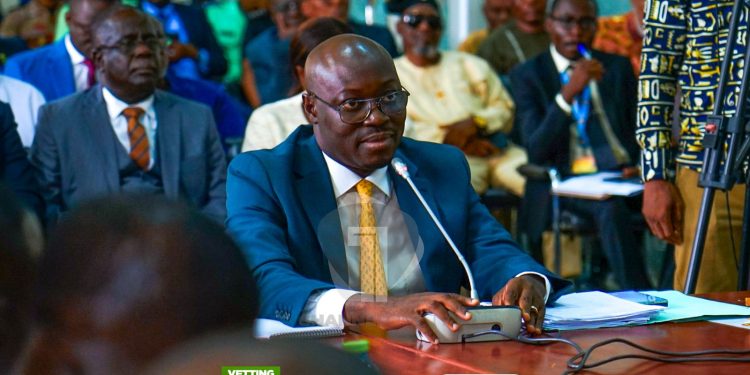The Bank of Ghana has confirmed that the recent weakness of the U.S. dollar has provided crucial support to the Ghana Cedi, helping to stabilise the local currency despite ongoing pressures in the domestic foreign exchange market.
According to the Central Bank, the U.S. dollar index weakened by about 8 percent between January and August 2025, largely driven by a slowing American labour market and expectations of interest rate cuts by the U.S. Federal Reserve.
The Bank of Ghana’s September 2025 Monetary Policy Report revealed that the easing dollar, coupled with the increased global use of alternative currencies such as the Chinese Yuan for trade and commodity settlements, helped strengthen several emerging market currencies, including the cedi.
In Ghana, the Cedi faced mixed performance during the period, coming under pressure from high import demand and reduced forex supply due to challenges in the Gold-for-Forex programme and lower remittance inflows.
Despite these factors, the local currency still posted significant gains — appreciating by 28.95 percent against the dollar, 19.49 percent against the pound, and 14.08 percent against the euro on a year-to-date basis, compared to heavy losses over the same period in 2024.
The Bank of Ghana maintains that the Cedi’s near-term stability will depend on sustained high gold prices, improved forex liquidity following new directives to mining companies, and continued fiscal discipline.
Positive investor sentiment from the the recent IMF programme reviews and developments in the U.S. monetary policy are also expected to influence the local currency’s performance in the coming months.
























































![[FREE FREE MONEY] Predict and Win a Guaranteed GH¢200 From Us EVERY WEEK](https://wordpress.ghanatalksradio.com/wp-content/uploads/2022/02/Predict-and-Win-Final-09-03-2021-218x150.jpg)
![[Predict & Win – 8th/Oct.] WIN A Guaranteed ¢200 From Us This Week](https://wordpress.ghanatalksradio.com/wp-content/uploads/2021/10/maxresdefault-16-218x150.jpg)
![[Predict & Win – 2nd] WIN A Guaranteed ¢200 From Us This Week](https://wordpress.ghanatalksradio.com/wp-content/uploads/2021/09/maxresdefault-50-218x150.jpg)
![[Predict & Win – 25th] WIN A Guaranteed ¢200 From Us This Week](https://wordpress.ghanatalksradio.com/wp-content/uploads/2021/09/maxresdefault-36-218x150.jpg)
![[Predict & Win – 18th] WIN A Guaranteed ¢200 From Us This Week](https://wordpress.ghanatalksradio.com/wp-content/uploads/2021/09/maxresdefault-23-218x150.jpg)









![[National cathedral] See full list of churches that have contributed since 2018](https://wordpress.ghanatalksradio.com/wp-content/uploads/2020/09/Ghana-National-Cathedral-GhanaTalksRadio-100x70.jpg)



